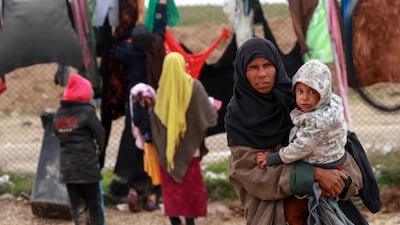During the 1990s, the notion of humanitarian intervention, particularly the responsibility to protect civilians from human rights abuses, gained credibility internationally. The high point came during the wars in Bosnia and Kosovo, when Nato intervened to protect Muslim populations suffering at the hands of the Bosnian Serbs, and later the Serbian state.
That was a brief moment, however, and several events cooled public enthusiasm, particularly in the west, towards defending vulnerable populations. The US invasion of Iraq, which was subsequently justified as a venture to spread democracy, turned many Americans off overseas interventions in defence of humanitarian values. The French and British involvement in Libya in 2011, although it may have saved the population of Benghazi, provoked rising migration flows to Europe, hardening Europeans to the benefits of removing dictators.
However, it is the conflict in Syria that has shown the true limits of humanitarian intervention. In the past seven years, the carnage in the country has vastly outpaced anything that happened in Bosnia or Kosovo – recent figures suggest that in excess of 560,000 people have died; more than 111,000 of them civilians – yet many western societies have seemed apathetic. The massacre at Srebrenica in Bosnia in 1995 was a turning point in that conflict, one that shocked the world. Yet Syria has been an endless succession of Srebrenicas, with no similar reaction.
Syria’s war has shown that the premise of humanitarian intervention could be undermined by factors unrelated to the violence, such as the absence of identification with the victim. Western societies – which, owing to their open political systems and traditional backing for human rights initiatives, would have been expected to uphold most forcefully the responsibility to protect those affected by conflict – watched as the slaughter unfolded, with many displaying little empathy for Syrians.
Yet few wars have been as barbaric as the one in Syria. The repeated use of chemical weapons by the regime, its deliberate and relentless targeting of civilians, its starvation of cities, its barrel bombs dropped on neighbourhoods, its detention and murder of tens of thousands of people – this is but a brief compendium of what has been on display there in recent years.
If humanitarian intervention is built on a feeling of shared solidarity with those suffering horrendous crimes, as well as a heightened sense of the need to defend international law and norms, all this was lacking with regard to Syrians. Their mass migration to Europe in 2015 was fiercely opposed by many Europeans, and nearly broke apart the European Union. Worse, the rise of ISIS made many westerners identify Syrians with jihadism. The Trump administration has barred Syrian refugees from moving to the US based on such fears.
Ideally, the idea of protecting civilians suffering at the hands of merciless regimes should not have anything to do with a country’s own experiences in overseas interventions, let alone cultural affinity with the victims. It is a standard of international relations, and as such it is about whether countries can build an international order based on law and agreed humanitarian principles. For seven bloody years, however, Syria has shown that the reality is very different.
If there is any hope for a rules-based international order, then it is up to the western countries, as established democracies, to take the lead. This may seem naive at a time when authoritarianism and national self-centredness has gained the upper hand in the US and many European societies. However, the more general question is whether countries truly want an international environment where there is a consensus over defining acceptable behaviour.
If the answer is no, then states must reconcile themselves to a Hobbesian global system defined by all against all, with only the most powerful benefiting. The generations that emerged from the two world wars last century realised the shortcomings of such a framework and worked hard to replace it with something better. They may not have succeeded, but they did lay down more principled foundations for international relations. The wars in the Middle East, Syria above all, are reminders of what a Hobbesian world leaves in its wake.
In 2013, the former president Bill Clinton declared that had the US intervened sooner during the Rwandan genocide, it could have saved up to 300,000 people. Perhaps one day we may hear a similar mea culpa from Barack Obama, although expecting the same from Donald Trump may be a stretch. Yet all are equally guilty of having been in a position to prevent mass murder, and doing nothing about it.
They’re hardly alone. The muscular affirmation of US self-interest has prompted a similar response in Europe. In Syria, the West abandoned the values of the post-war world and the lessons of its own more recent history. It’s ironic that one of the Assad regime’s main tactics during the war in Syria has been to dehumanise those whom it is killing, reinforcing the idea that they merit no sympathy.
The international order being shaped today fits in with such an objective. It is teaching us that years after the conflicts in Bosnia and Kosovo, those claiming to defend international norms are now having trouble extending that impulse to the very human beings paying the heaviest price for the absence of such principles.
Michael Young is editor of Diwan, the blog of the Carnegie Middle East programme, in Beirut


